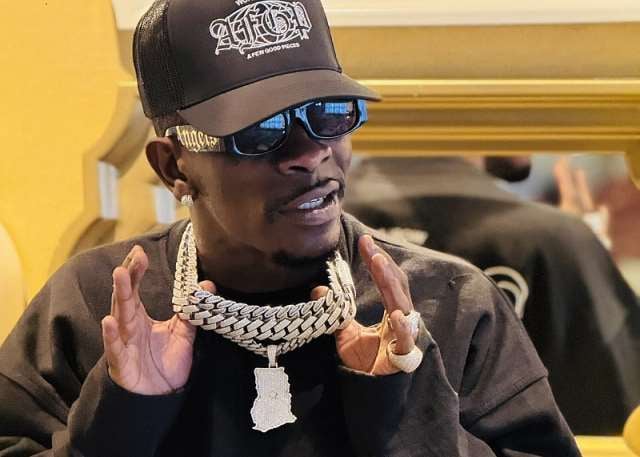The controversy surrounding dancehall artist Shatta Wale’s seized Lamborghini Urus continues to unfold, prompting discussions about responsible social media behavior and the implications of flaunting wealth. Shatta Wale’s public outburst against the Economic and Organised Crime Office (EOCO) followed the seizure of his 2019 Lamborghini Urus, which the agency claims is linked to the proceeds of crime involving a convicted Ghanaian fraudster serving time in the United States. EOCO’s seizure, conducted at Shatta Wale’s Trassaco Valley residence, came at the behest of the FBI and the US Justice Department. While EOCO maintains that Shatta Wale cooperated during the seizure and even requested discretion to protect his image, the artist later accused EOCO’s Executive Director, Raymond Archer, of orchestrating a public embarrassment, even going so far as to warn that the incident could negatively impact the ruling NDC party in the 2028 elections.
Solomon Owusu, a prominent member of the Movement for Change, has criticized Shatta Wale’s reaction, arguing that the artist’s anger is misdirected. Owusu contends that if the vehicle is indeed linked to criminal activity, Shatta Wale is also implicated and should direct his frustration towards the individual who sold him the allegedly stolen Lamborghini. This perspective shifts the focus from the law enforcement agency carrying out its duty to the potential culpability of individuals involved in the transaction of illicit goods. Owusu’s intervention highlights the importance of accountability not just for the end consumer but also for those facilitating the movement of potentially illegal assets.
Owusu’s critique extends beyond the immediate incident to address the broader issue of ostentatious displays of wealth on social media. He expresses concern over the influence such displays have on young people, who may feel pressured to emulate these lifestyles, often without the legitimate means to do so. This pressure, he argues, can lead to desperate measures and erode societal moral values. He calls for public figures like Shatta Wale to be more mindful of their social media presence and the messages they convey, particularly to impressionable youth. This raises a crucial question about the responsibility of influencers and celebrities in shaping societal values and behaviors.
The incident involving Shatta Wale’s Lamborghini underscores the complexities of acquiring luxury goods, particularly in a globalized market where the provenance of such items can be obscured. It emphasizes the need for due diligence on the part of buyers to ensure they are not inadvertently supporting or becoming entangled in criminal enterprises. Furthermore, it highlights the role of law enforcement agencies in tracking and recovering assets linked to criminal activities, even when those assets are in the possession of individuals unaware of their illicit origins.
The unfolding narrative serves as a cautionary tale about the potential pitfalls of acquiring high-value items without thoroughly vetting their history. It also raises questions about the ethical implications of flaunting wealth, especially when such displays can create unrealistic expectations and contribute to societal pressures. The incident suggests a need for greater transparency in the luxury goods market and increased awareness among consumers about the importance of responsible purchasing.
Finally, this controversy shines a light on the intersection of celebrity culture, social media influence, and law enforcement. It demonstrates how the actions of public figures can have far-reaching consequences, impacting not only their own reputations but also the perceptions and behaviors of their followers. It serves as a reminder that public figures, particularly those with large followings, bear a responsibility to act ethically and to consider the potential impact of their actions on society. The incident involving Shatta Wale’s Lamborghini is likely to continue generating discussion and debate about these important issues for some time to come.














